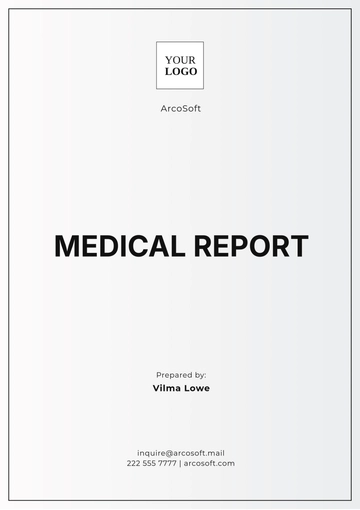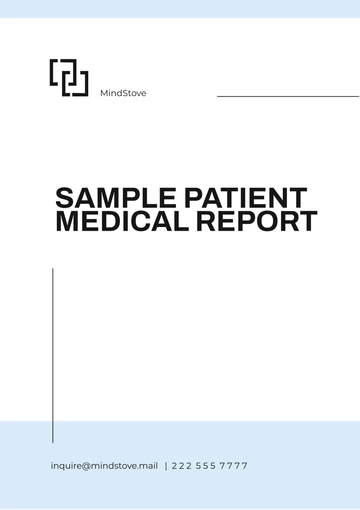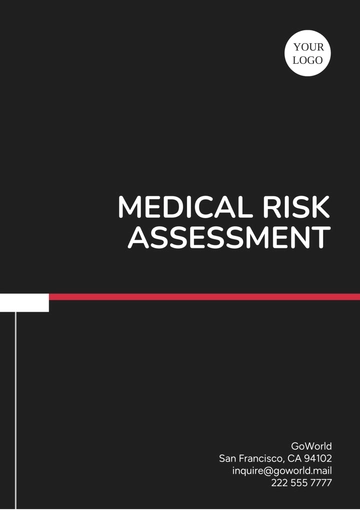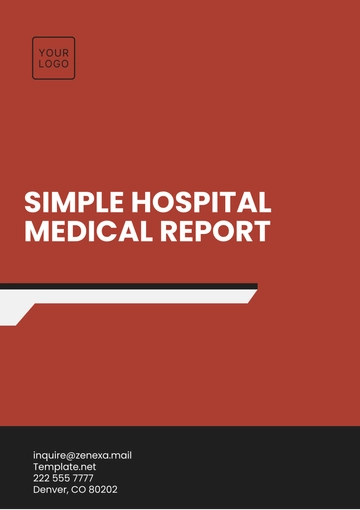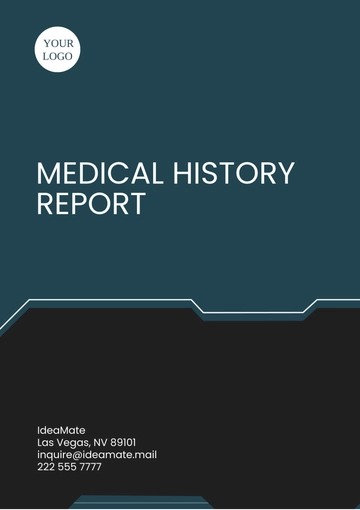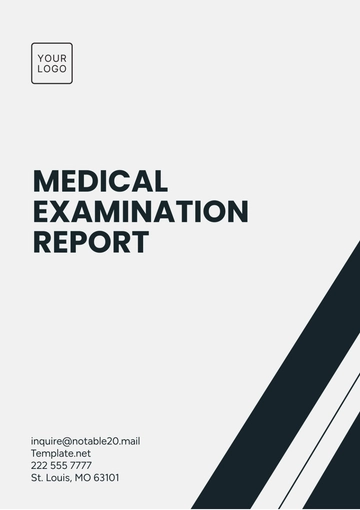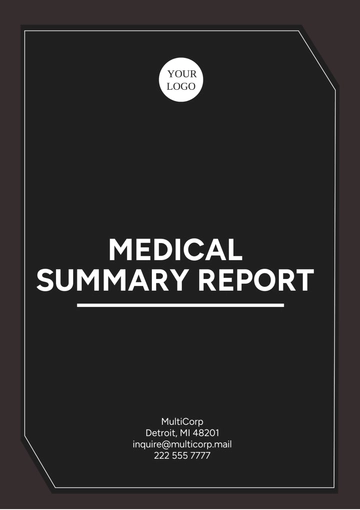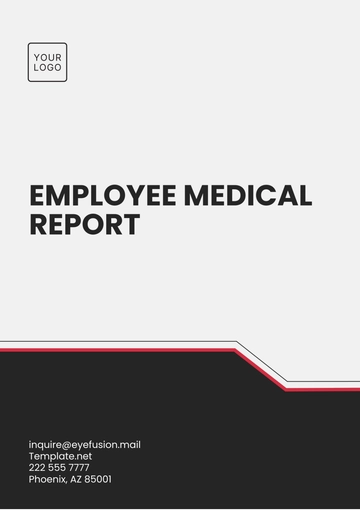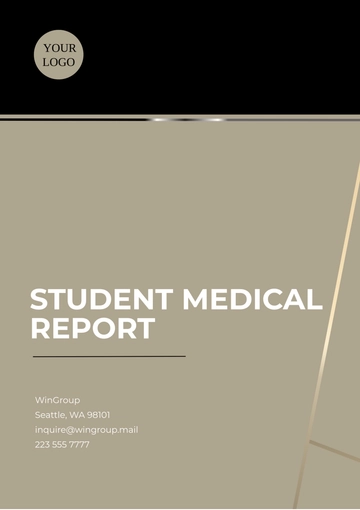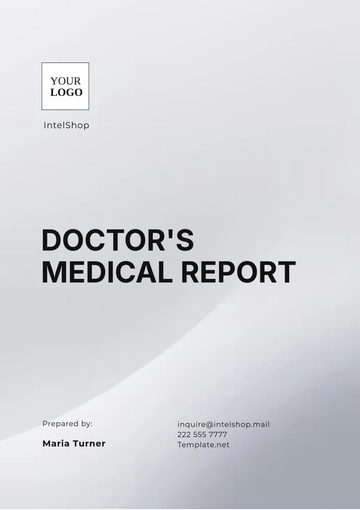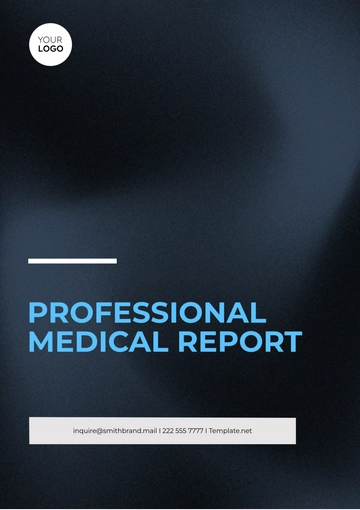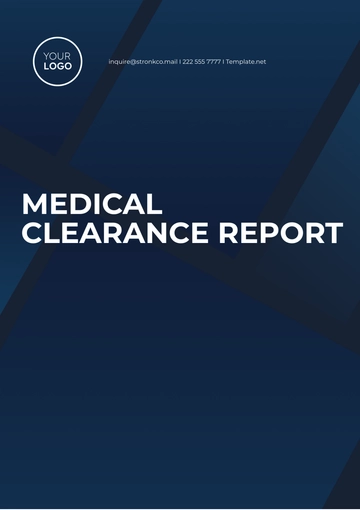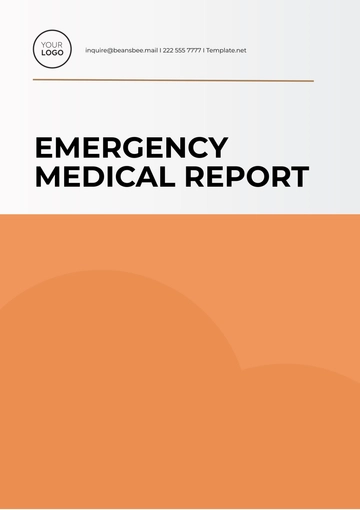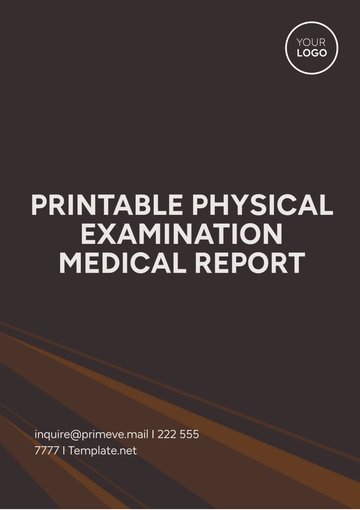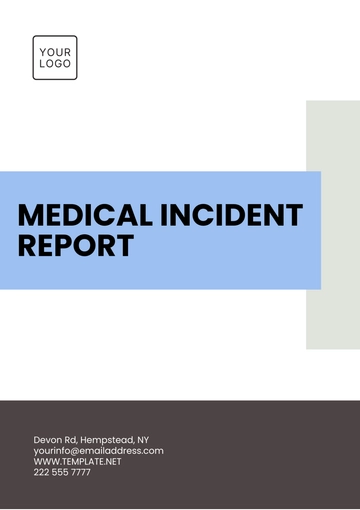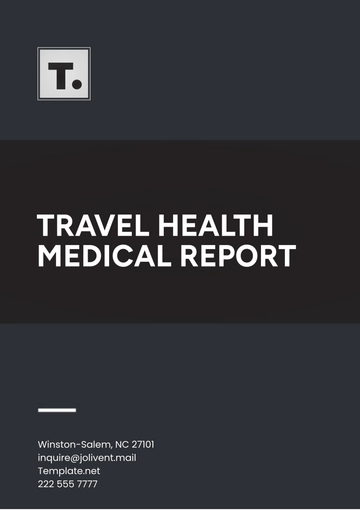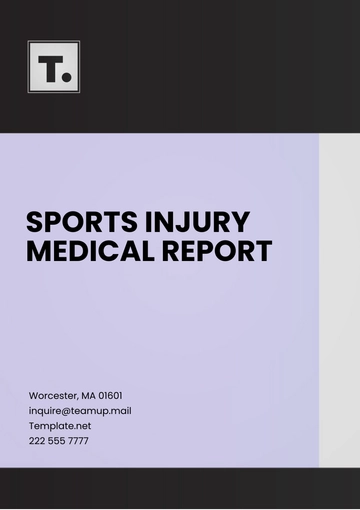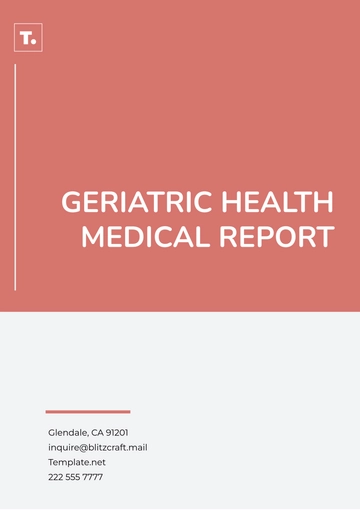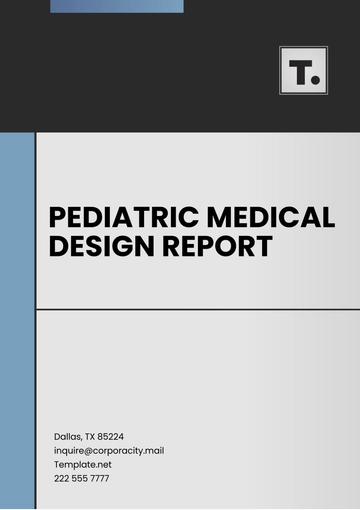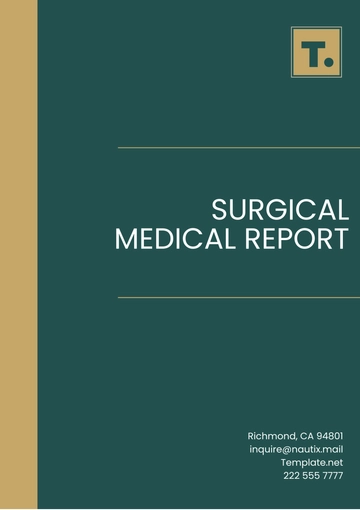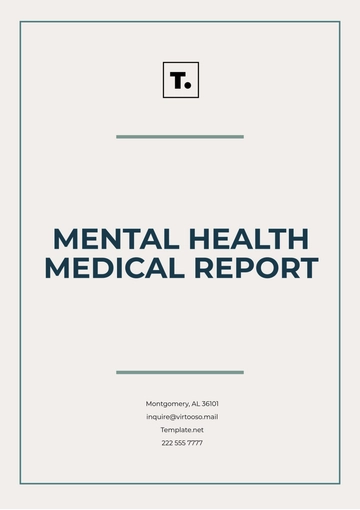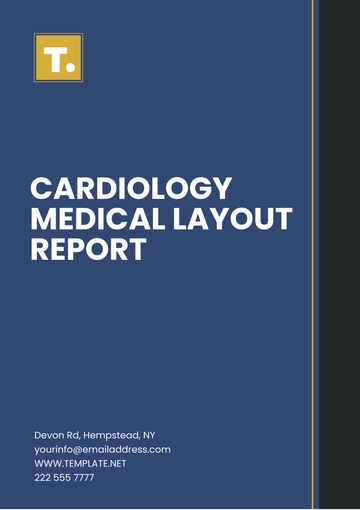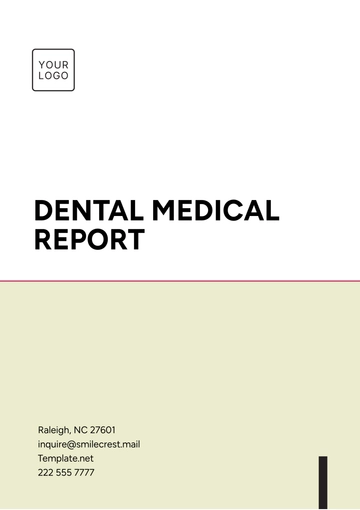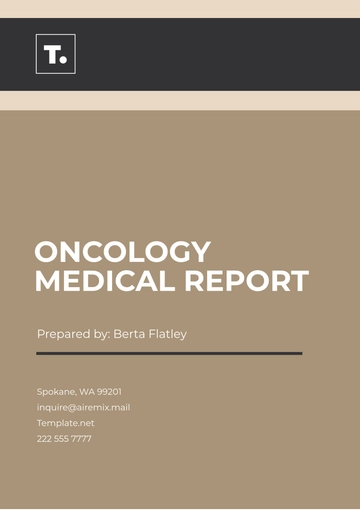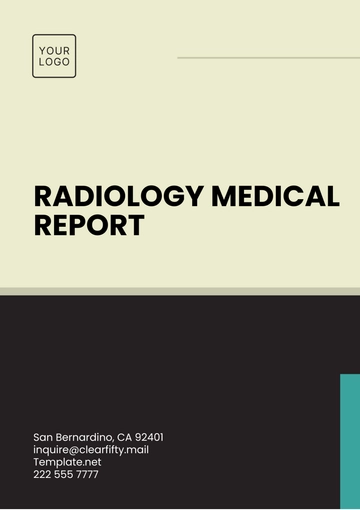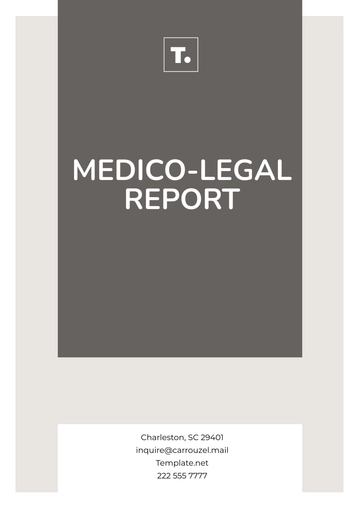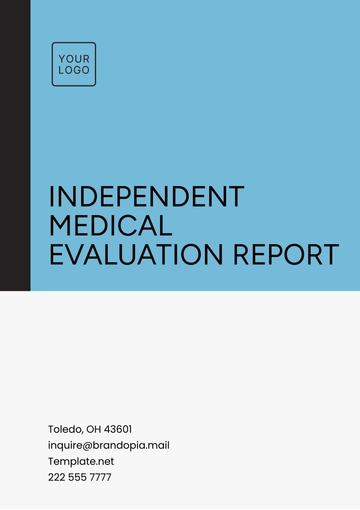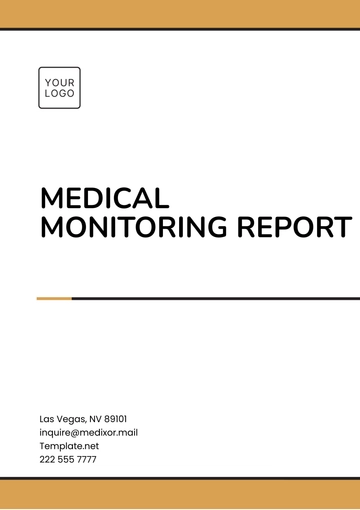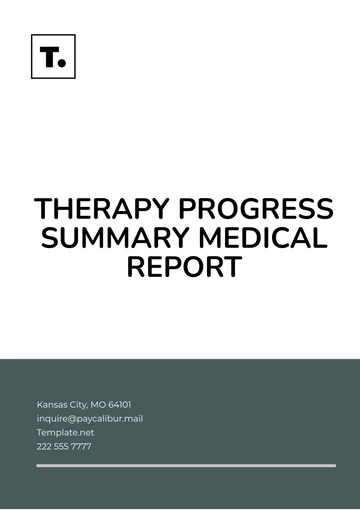Free Cardiology Medical Layout Report
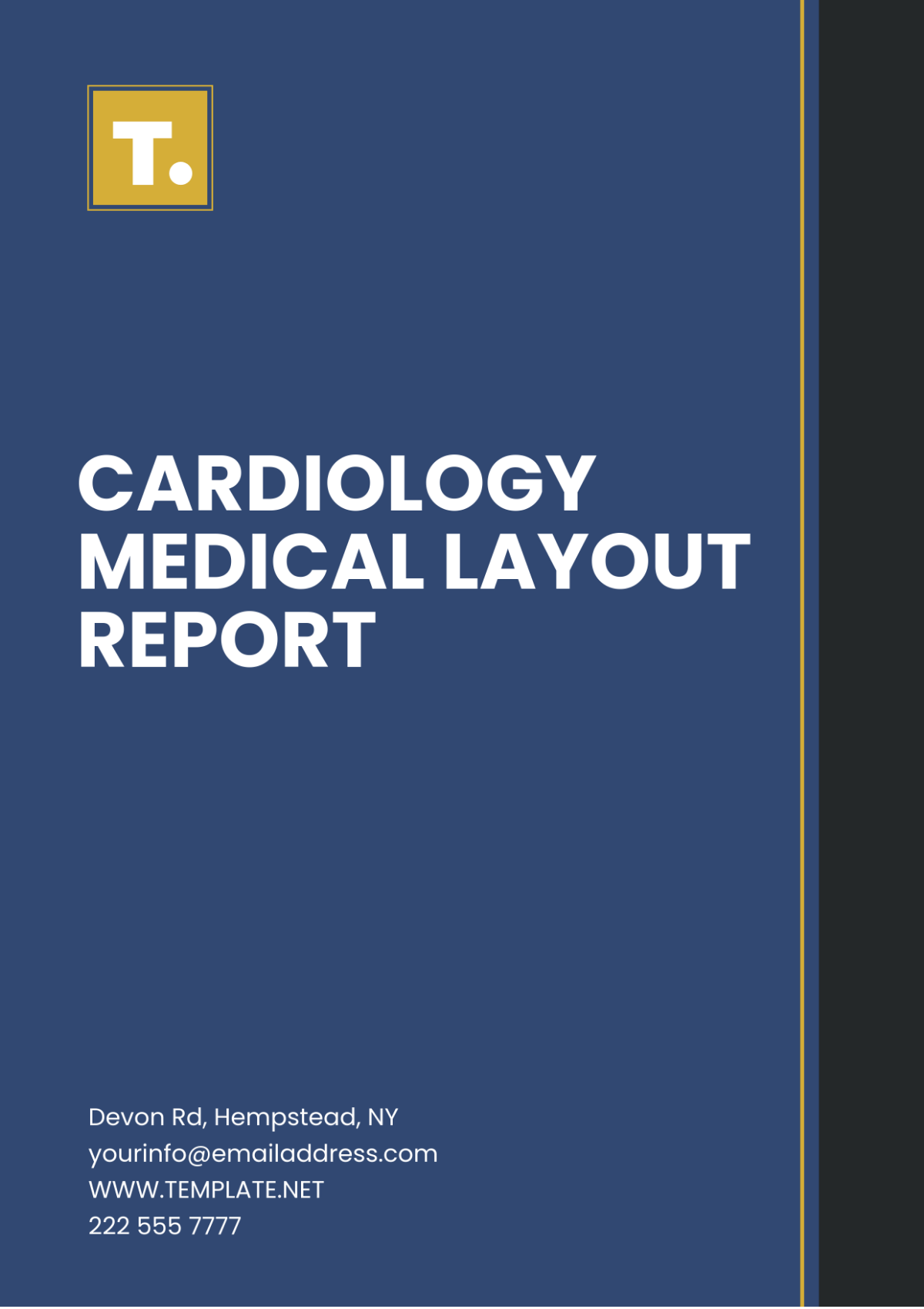
Patient Information
Patient Name: | [Your Name] |
Patient ID: | 123456789 |
Date of Birth: | January 1, 2050 |
Gender: | Female |
Contact Information: | 123-456-7890 |
Reason for Visit
Provide a concise statement regarding the primary complaint or symptoms leading to the visit, such as chest pain, dyspnea, palpitations, or follow-up for existing conditions.
Medical History
Past Medical History:
Detail relevant medical history, including previous cardiovascular diseases (e.g., hypertension, coronary artery disease), surgeries (e.g., bypass surgery, angioplasty), and any other significant illnesses.Current Medications:
List all medications the patient is currently taking, including dosages and frequency. Include over-the-counter medications and supplements.Allergies:
Specify any known drug allergies or adverse reactions.Family History:
Include a summary of family history of cardiovascular diseases, diabetes, hypertension, or hyperlipidemia.Social History:
Detail lifestyle factors such as tobacco use, alcohol consumption, dietary habits, exercise frequency, and occupation.
Examination Findings
Vital Signs:
Blood Pressure: Systolic/Diastolic, mmHg
Heart Rate: BPM, regular/irregular
Respiratory Rate: RPM
Temperature: °F/°C
Oxygen Saturation: SpO2%
General Appearance:
Describe the patient's general condition (e.g., well-nourished, in mild distress).Cardiovascular Examination:
Heart Sounds: Document any abnormal sounds such as murmurs, gallops, or rubs.
Palpation: Note any heaves, thrills, or abnormal pulsations.
Peripheral Vascular Examination: Assess pulses, capillary refill, and edema.
Respiratory Examination:
Note findings relevant to cardiac health, such as lung sounds and effort.
Diagnostic Tests
Electrocardiogram (ECG):
Summarize key findings, including rhythm, rate, axis, and any abnormalities such as ST-segment changes or arrhythmias. Attach the ECG report.Echocardiogram:
Detail findings such as chamber sizes, wall motion abnormalities, ejection fraction, and valve function. Attach the echocardiogram report.Stress Test Results:
If applicable, summarize findings and patient tolerance of the test, noting any ischemic changes or arrhythmias.Laboratory Tests:
List relevant tests (e.g., lipid panel, complete blood count, cardiac biomarkers) and their results.
Assessment
Provide a comprehensive assessment of the patient’s cardiac health based on examination findings, diagnostic tests, and medical history. Include any relevant clinical diagnoses (e.g., stable angina, heart failure, hypertension).
Management Plan
Pharmacological Management:
List any new medications prescribed, adjustments to existing medications, and rationale for therapy.Lifestyle Modifications:
Recommend specific lifestyle changes tailored to the patient, including dietary adjustments, exercise programs, weight management strategies, and smoking cessation.Further Investigations:
Outline any additional tests or referrals needed, such as advanced imaging (MRI, CT) or consultations with other specialists.Follow-Up Care:
Specify recommendations for follow-up visits, including time frame and purpose (e.g., medication review, repeat testing).
- 100% Customizable, free editor
- Access 1 Million+ Templates, photo’s & graphics
- Download or share as a template
- Click and replace photos, graphics, text, backgrounds
- Resize, crop, AI write & more
- Access advanced editor
Our Cardiology Medical Layout Report Template from Template.net simplifies your cardiology reporting process. This editable and customizable template helps you generate detailed reports efficiently. Tailor it to your practice's needs and edit seamlessly in our AI Editor Tool for a polished finish.
You may also like
- Sales Report
- Daily Report
- Project Report
- Business Report
- Weekly Report
- Incident Report
- Annual Report
- Report Layout
- Report Design
- Progress Report
- Marketing Report
- Company Report
- Monthly Report
- Audit Report
- Status Report
- School Report
- Reports Hr
- Management Report
- Project Status Report
- Handover Report
- Health And Safety Report
- Restaurant Report
- Construction Report
- Research Report
- Evaluation Report
- Investigation Report
- Employee Report
- Advertising Report
- Weekly Status Report
- Project Management Report
- Finance Report
- Service Report
- Technical Report
- Meeting Report
- Quarterly Report
- Inspection Report
- Medical Report
- Test Report
- Summary Report
- Inventory Report
- Valuation Report
- Operations Report
- Payroll Report
- Training Report
- Job Report
- Case Report
- Performance Report
- Board Report
- Internal Audit Report
- Student Report
- Monthly Management Report
- Small Business Report
- Accident Report
- Call Center Report
- Activity Report
- IT and Software Report
- Internship Report
- Visit Report
- Product Report
- Book Report
- Property Report
- Recruitment Report
- University Report
- Event Report
- SEO Report
- Conference Report
- Narrative Report
- Nursing Home Report
- Preschool Report
- Call Report
- Customer Report
- Employee Incident Report
- Accomplishment Report
- Social Media Report
- Work From Home Report
- Security Report
- Damage Report
- Quality Report
- Internal Report
- Nurse Report
- Real Estate Report
- Hotel Report
- Equipment Report
- Credit Report
- Field Report
- Non Profit Report
- Maintenance Report
- News Report
- Survey Report
- Executive Report
- Law Firm Report
- Advertising Agency Report
- Interior Design Report
- Travel Agency Report
- Stock Report
- Salon Report
- Bug Report
- Workplace Report
- Action Report
- Investor Report
- Cleaning Services Report
- Consulting Report
- Freelancer Report
- Site Visit Report
- Trip Report
- Classroom Observation Report
- Vehicle Report
- Final Report
- Software Report
